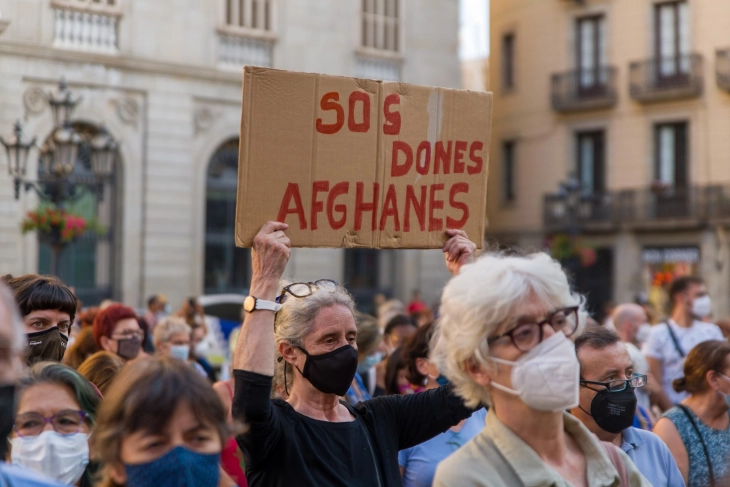Wearing the burqa 'is the least of our problems,' say Afghan women
- Post By Magdalena Reed
- 18:33, 19 August, 2021

Islamabad, 19 August 2021 (dpa/MIA) — Marina Haidari's childhood memories are catching up with her. One of them dates back to 1997, when the Taliban was ruling Afghanistan for the first time.
Back then, terrifying songs were constantly blasting from speakers attached to Taliban trucks driving through the streets. As soon as they could be heard, everyone vanished into their homes.
One time, when Marina was on her way to the bazaar and already too far from her house, a Taliban fighter appeared out of nowhere and hit her in the face with a whip – because she wasn't wearing a burqa.
At the time, she was 12 years old.
Today, Marina is 37 and is shaking her head as she watches several of her younger female relatives try on a burqa for the first time in her bedroom, she tells dpa by phone.
The Taliban have been back for less than a week, and the girls are already wrestling with the blue, heavy body covering made from plastic-like material.
For the first time, their eyes are watching the world from behind the barred face veil.
Marina's sister-in-law had purchased the burqa about three weeks ago, on a premonition that the militants could soon arrive in their city.
"This thing is maybe the most visible sign that they're back in power," says Marina. "In reality, however, the chadaree is the least of our problems," she adds, using the Afghan term for the burqa.
Marina is certain that Afghan women will soon have to deal with much worse.
Following the US invasion of Afghanistan, the West had tried to foster women's rights in the country for 20 years, establishing countless programs not only in larger cities but also in rural areas.
Afghan women have recalled the effect these programs had on them.
"I realized for the first time that I had been treated like an animal all my life," a woman from the northern province of Badakhshan said.
Encouraged by the support, women started to ask for more rights within their families, demanding a voice, an education, a job or even political participation.
But since there were virtually no programs to teach men the importance of women's rights, a potential for conflict opened up. Men often only knew one answer to the new demands: violence.
Women who turned to the police or filed complaints only found themselves face to face with more men of the same attitude – and more violence.
The rights enjoyed by Afghan women today – from playing sports to being able to choose their field of study – were achieved with great sacrifices as brave activists risked their lives for a little bit more freedom.
Afghanistan's women know this. And they know what is at stake now.
The new status quo since Sunday, when the Taliban entered the capital, Kabul, and took de-facto control of the country again, is a devastating blow to women's rights.
"We women have lost everything," says lawmaker Raihana Asad. "And we are facing an attack that feels slightly less terrible than the end of the world."
Asad says she doesn't believe at all in what the Taliban are promising. The militants recently declared they would also respect women's rights "within the framework of Islamic law."
This week, a Taliban representative was interviewed by a female reporter on the security situation in Kabul, something few Afghans would have dared to imagine. But other signs are still pointing to a dire future for Afghanistan's women. A renowned TV presenter was sent home by the Taliban this week despite wearing a body covering.
According to Asad, the militants also sent home female students in the western city of Herat, telling them they didn't need to come back. Local media reported that more women than men had been enrolled at universities in the city.
Asad fears that it will only be a question of time before girls won't even be allowed to go to school any more, once the Taliban have firmly established their rule.
Images of women being publicly flogged or stoned recall the first Taliban regime in the 1990s, but the lawmaker believes the militants will take a different approach this time.
She reports having heard of Taliban fighters specifically searching for women's rights activists, including herself. "I believe they will not execute activists and women like me in public," Asad says.
"They will just make us disappear."







